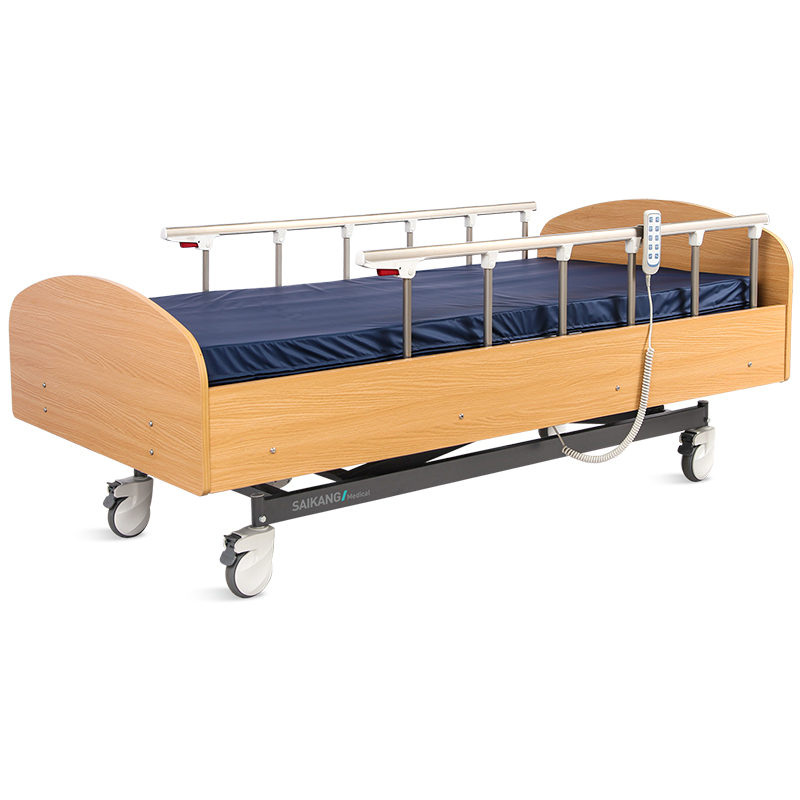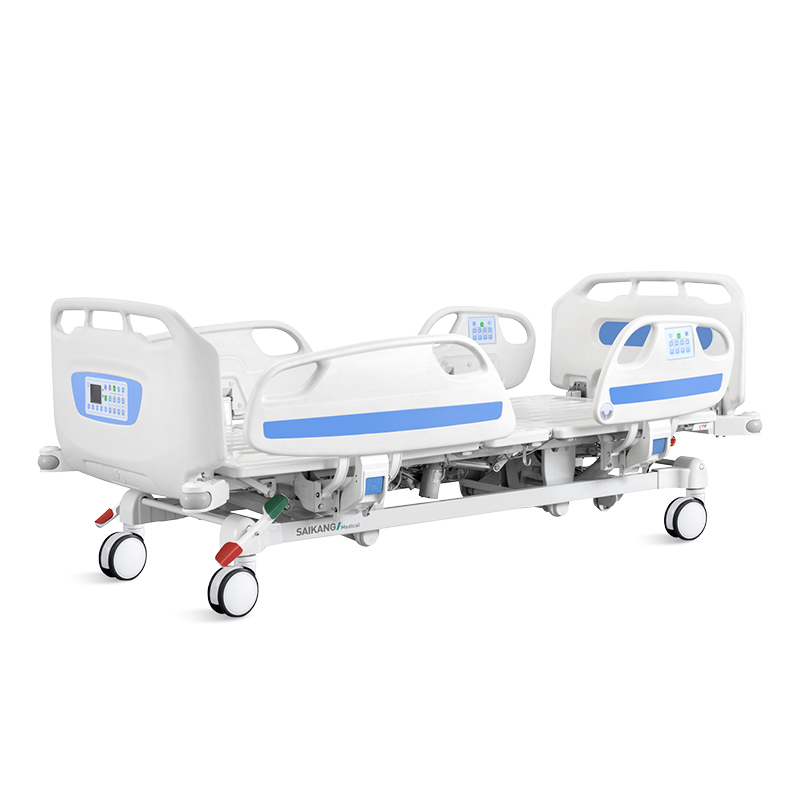Hospitals, a place where care and recovery intertwine, are like intricate puzzles where every piece plays a crucial role. Among these pieces, the cama de hospital stands out as a cornerstone. Have you ever wondered about the size of a hospital bed? By using heavy jargon, we’ll solve the puzzle in this piece using language that the average person is familiar with.
Understanding the Basics
1. The Standard Dimensions
Hospital beds come in various shapes and sizes, but the standard dimensions usually hover around 35 inches in width and 80 inches in length. This ensures ample space for patients while allowing medical professionals easy access.
2. Twin, Full, or Queen?
Comparing hospital beds to home beds can be like comparing apples to oranges. Unlike your cozy twin or queen-sized bed at home, hospital beds prioritize functionality over extravagance. They are designed for easy maneuvering, ensuring medical staff can efficiently provide care.

Delving Deeper
1. Adjustable Features
One of the distinguishing features is the adjustability. Hospital beds often come with mechanisms to raise or lower the entire bed, allowing patients to find a comfortable position. See it as a universal chair that can be adjusted to fulfill your requirements.
2. Side Rails: A Safety Measure
Ever noticed those side rails on hospital beds? They serve a crucial purpose: preventing accidental falls. Picture them as the protective walls of a castle, ensuring patients remain secure within their fortress of recovery.
Decoding Specialized Beds
1. Bariatric Beds
For individuals requiring additional support, bariatric beds step in. These beds boast wider dimensions and higher weight capacities, accommodating diverse patient needs. It’s like upgrading from a compact car to an SUV for enhanced stability and support.
2. Pediatric Hospital Beds
Catering to our little warriors, pediatric hospital beds are smaller in size, resembling a snug haven. Think of them as cribs for superheroes, providing a safe space for the tiniest patients.
The Importance of Size in Patient Care
1. Comfort and Healing
The size of a hospital bed directly influences patient comfort. A well-sized bed ensures a conducive environment for healing, making the recovery journey smoother. It’s akin to having the perfect canvas for an artist to create their masterpiece.
2. Accessibility for Care Providers
Medical professionals need ample space to navigate and administer care. The right bed size ensures accessibility, allowing healthcare providers to carry out their duties with precision. Imagine trying to cook in a cramped kitchen—it’s all about the right space.
Practical Considerations
1. Mobility and Transport
Hospital beds aren’t static; they need to move. Whether shifting patients within the facility or transporting them for procedures, the size of the bed plays a vital role. It’s like choosing the right-sized vehicle for a road trip—comfort and functionality in motion.
2. Storage and Space Efficiency
In the intricate dance of hospital logistics, space is at a premium. Optimal bed size ensures efficient use of space, resembling a well-organized closet where every item has its designated spot.
Preguntas frecuentes
Are hospital beds one-size-fits-all?
No, hospital beds come in various sizes to cater to diverse patient needs. From standard dimensions to specialized bariatric and pediatric beds, the goal is to provide personalized care.
Can I buy a hospital bed for home use?
Certainly! There are options for home-use hospital beds, though they may differ slightly from those in healthcare facilities. Always consult with healthcare professionals for the best fit.
Why are hospital beds adjustable?
Hospital beds with removable parts improve patient comfort and help medical staff give more effective care. It’s about figuring out the right job for all people’s specific demands.
Do all hospital beds have side rails?
While not universal, side rails are a common safety feature in hospital beds. They act as a protective barrier to prevent accidental falls and ensure patient safety.
How often are hospital bed dimensions updated?
Hospital bed designs evolve, considering advancements in medical technology and patient care. Sin embargo, updates to dimensions are infrequent and typically align with industry standards.

Explore the right sized bed for hospital
For the right-sized beds for hospitals, contact the ZIMAI Safety website, XIEBAY. And embark on the journey of understanding cama de hospital sizes, for in their dimensions lies the blueprint of care and recovery. By breaking down these basic parts, we reveal a world in which size matters a great deal—not just in houses but also at the core of healthcare. And at last, don’t forget to visit XIEBAY.
The Conclusion
It becomes clear as we near the end of our investigation into hospital bed sizes that their dimensions are more than just figures. They facilitate healing, ease patient discomfort, and foster a healing atmosphere. Deciphering a bed’s dimensions is similar to understanding an essential aspect of healthcare’s complex architecture.
 Proveedor profesional de equipos médicos
Proveedor profesional de equipos médicos
